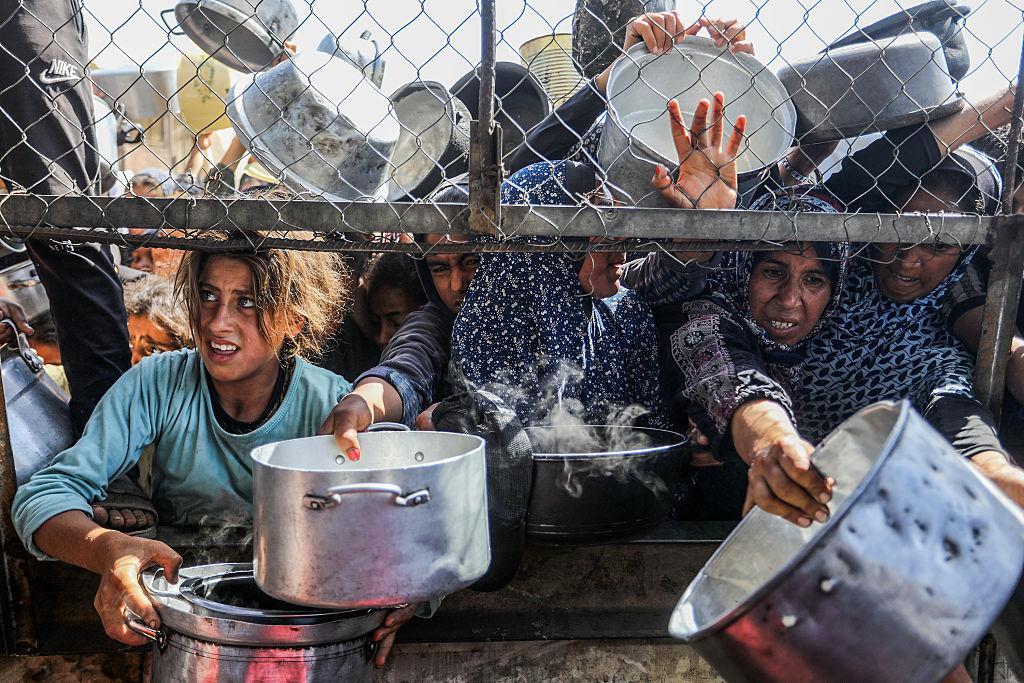
Eid in Gaza: Prayer Amid Ruins, Hunger, and Growing Humanitarian Crisis
As the world celebrated Eid al-Adha, a significant Islamic holiday, on June 6, 2025, Palestinians in Gaza were forced to gather for prayers in open spaces due to the devastating destruction of mosques. The ongoing conflict has left the region in ruins, with over 54,000 lives lost and widespread displacement. Amidst the devastation, the humanitarian crisis in Gaza continues to worsen, with food scarcity reaching alarming levels.
The United Nations has warned of an impending famine, which will affect nearly 500,000 people, including women and children. The aid distribution remains challenging due to the escalating violence, making it difficult to reach those in need. Despite these challenges, the resilience of the Palestinian people is a testament to their unwavering faith in the face of adversity.
Gaza, a region of approximately 2 million people, has been under Israeli blockade since 2007. The blockade has had a devastating impact on the economy, infrastructure, and daily life of the Palestinians. The situation has been exacerbated by the recent conflict, which has destroyed homes, schools, hospitals, and mosques, leaving thousands of people without access to basic necessities like food, water, and shelter.
The destruction of mosques is particularly significant, as these sacred spaces serve as community hubs and symbols of faith. The loss of these spaces has left many Palestinians without a place to pray, mourn, and find solace during times of crisis. The Eid al-Adha celebrations, which typically take place in mosques, were forced to adapt to these new circumstances.
In response to the humanitarian crisis, international organizations and aid agencies have been working tirelessly to provide assistance to those affected. The United Nations Relief and Works Agency for Palestine Refugees in the Near East (UNRWA) has been providing emergency food assistance to over 800,000 people, including vulnerable refugees and displaced persons.
The World Food Programme (WFP) has also been working to address the food crisis, providing emergency food assistance to over 1 million people. The organization has appealed for funding to support its efforts, as the current crisis is expected to worsen in the coming months.
Despite these efforts, the situation in Gaza remains dire. The lack of access to basic necessities like food, water, and electricity is taking a devastating toll on the health and well-being of Palestinians. The psychological impact of the conflict is also significant, with many individuals and families struggling to cope with the trauma and loss they have experienced.
In the face of such adversity, the Eid al-Adha celebrations in Gaza took on a new significance. Amidst the ruins and destruction, Palestinians came together to pray, share what little they had, and find solace in their faith. The holiday, which commemorates the willingness of the Prophet Ibrahim to sacrifice his son Ismail, served as a reminder of the importance of perseverance, resilience, and compassion.
As the international community continues to grapple with the humanitarian crisis in Gaza, it is essential to recognize the resilience and strength of the Palestinian people. Despite the challenges they face, they remain committed to their faith, their culture, and their community.
The Eid al-Adha celebrations in Gaza serve as a powerful reminder of the importance of faith, hope, and resilience in the face of adversity. As the world continues to work towards a peaceful resolution to the conflict, it is essential to prioritize the humanitarian needs of those affected and to support the efforts of aid agencies working to address the crisis.
Sources:
https://thecsrjournal.in/eid-al-adha-in-gaza-faith-endures-amid-devastation-and-food-shortages/



